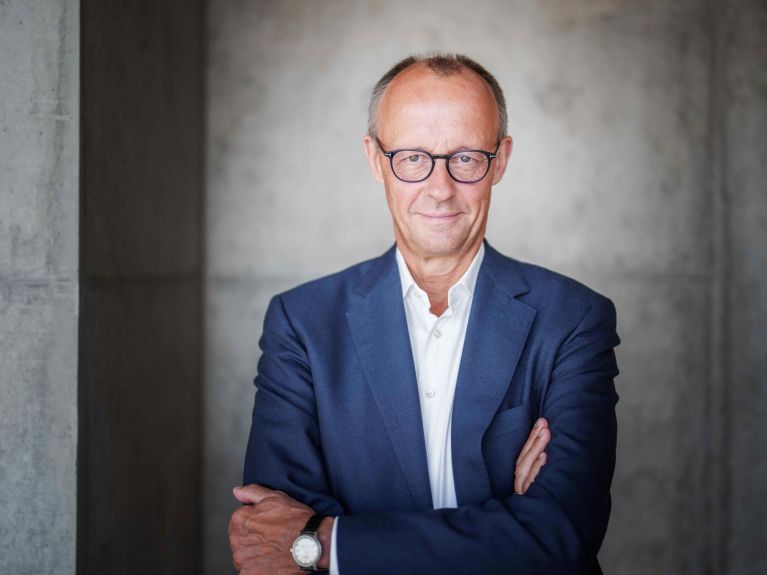Friedrich Merz: conservative transatlanticist
Who is the man expected to be the next federal chancellor of Germany and what does he stand for politically?

Friedrich Merz is expected to be the next federal chancellor of Germany. The snap election held on 23 February 2025 was won by the CDU/CSU, and he is their candidate.
Who is Friedrich Merz?
Aged 69, Merz has been chairman of the Christian Democratic Union of Germany (CDU) and chairman of the joint parliamentary group of the CDU and CSU (Christian Social Union in Bavaria) since February 2022. Having previously retired from active politics for several years due to differences with former Federal Chancellor Angela Merkel, Merz did not rejoin the Bundestag until 2021.
Entry into the European Parliament
Friedrich Merz was born in Brilon in rural North Rhine-Westphalia, where he still lives today. A lawyer by training, he has worked as an attorney for a major international law firm. He served in the European Parliament from 1989 to 1994 and was a member of the Bundestag from 1994 to 2009. Known as a transatlanticist, Merz spent a decade chairing the Atlantic Bridge – a cross-party group that brings together politicians, business leaders and academics from both Europe and the US.
He supports economically liberal policies while taking a more conservative position on social issues. Under his leadership in the last legislative period, the CDU emphasised its right-leaning stance more explicitly. The party’s new foundational platform approved in 2024 marks a clear departure from Angela Merkel’s policies in many areas: it is now in favour of a return to compulsory military service and retaining nuclear energy, for instance. The new programme also marks the reintroduction of the notion of German culture being the Leitkultur or core culture in Germany. This was an issue on which Merz initiated a debate in 2000, when he was parliamentary group leader of the CDU/CSU in the Bundestag.
Call for a change in migration policy
Merz recently stirred up debate with his initiatives on migration. In the wake of attacks in Solingen, Magdeburg and Aschaffenburg in which several people were fatally injured by attackers with a migration background, he called for a change in German asylum and migration policy. The five-point plan introduced by the CDU/CSU to the Bundestag only received a majority with the votes of the Alternative for Germany (AfD) – parts of which are classified as belonging to the far right.
Merz has firmly ruled out any cooperation with the AfD, however. “There will be no cooperation, no tolerance, no minority government – nothing,” he said at the CDU’s federal party conference at the beginning of February. After the election, too, he categorically ruled out working with the AfD. The AfD “can extend its hand as much as it wants, we’re not going to pursue the wrong policies for this country,” said Merz on the TV show Berliner Runde on election night. The AfD wanted the opposite of what the CDU/CSU wanted, Merz said: “We’re not looking for freedom and peace on Putin’s lap,” said the CDU chairman with regard to the AfD’s Russia policy.
Friedrich Merz is married with three grown-up children. An amateur pilot, he is regarded as being sober and disciplined, but sometimes quick-tempered, too. His popularity ratings among the German population have improved since he was nominated as candidate for chancellor; he scored particularly well among male voters over the age of 45, though less so among young women.


